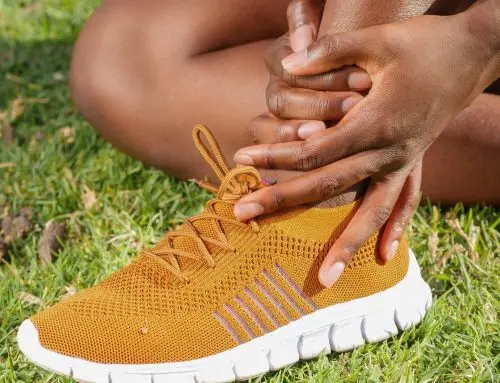So you’re all prepared to run. That’s great, but the hard part isn’t starting to run, it’s actually sticking to a plan of regular training. In truth, running can be very difficult for newcomers. You will exhaust yourself during your runs, then you may actually feel worse than normal the following day: sore, tired, and without any noticeable improvement in your health or body. The good news is, those feelings are short-lived if you’re tough enough to get through them. Running is actually quite enjoyable once your body adjusts, and the more you do it, the better it gets. Here are some tips to help you through the dip:
Don’t start too fast

One pitfall many people encounter is being too aggressive on their first runs. Mike has a new pair of running shoes, he woke up early to run, and he’s ready to take on the world. He pushes himself to the limit on his first run, returning absolutely exhausted. The second day, although he’s still exhausted and aching, he get up early and sprint up some hills. On the third day, despite Mike’s best intentions, he can’t get himself out of bed. He sleeps in and skip his run. The fourth day, Mike’s job gets in the way. By the fifth day, he’s just lost interest. The problem is, like many people Mike has burnt himself out. There is no need to reinvent your life and destroy your body in the first week. You don’t even have to run every day. Try it every other day, or every third day, and allow your body to heal between runs. If exercise is completely foreign to you, you can even start out with some long walks and build up to jogging.
Don’t diet excessively
 One reason many people run is to lose weight. Running is, in fact, a great way to trim down, but you have to be careful. If you start a strict new diet the same time you start running, you could encounter problems. Running requires a lot of energy. If you decreasing your caloric intake with a low-calorie diet while simultaneously increasing your caloric burn with a new running regimen, you’re just going to run out of fuel. Regular runners eat a lot, but they eat healthy. Good food not only fuels you on your runs, it will help your body heal during your rest periods. I’m thinking of fruits, vegetables, oats, whole wheat, lean meat, you know.
One reason many people run is to lose weight. Running is, in fact, a great way to trim down, but you have to be careful. If you start a strict new diet the same time you start running, you could encounter problems. Running requires a lot of energy. If you decreasing your caloric intake with a low-calorie diet while simultaneously increasing your caloric burn with a new running regimen, you’re just going to run out of fuel. Regular runners eat a lot, but they eat healthy. Good food not only fuels you on your runs, it will help your body heal during your rest periods. I’m thinking of fruits, vegetables, oats, whole wheat, lean meat, you know.
Find a partner

One of the best ways to get started running is to find a partner to run with. If they have running experience, all the better, because they will have plenty of knowledge to share, but they don’t have to be experienced. Your running partner(s) can provide you with moral support, some friendly competition, and most importantly, a reason to get out and run. If you’ve already agreed to go running with someone, their peer pressure will make you a lot less likely to skip. Often, the hardest step is just deciding to put on your shoes.
Stick to a schedule
Developing a reasonable schedule and sticking to it is vitally important for a new runner. Little excuses have a way of working into your mind, destroying your pattern and begetting more excuses. There will be days when you don’t really feel like running. You’ll feel like you’re not making progress and you’ll struggle to complete your run. The beautiful thing is, if you stick to it, you’re body will adapt without you even realizing it. Your stamina will increase. You’re muscles will get stronger. You’re lungs will become more efficient. Your heart will get stronger. One day you’ll wake up and feel amazingly good. You’ll run an extra mile with a grin on your face, just because you can.








Leave A Comment